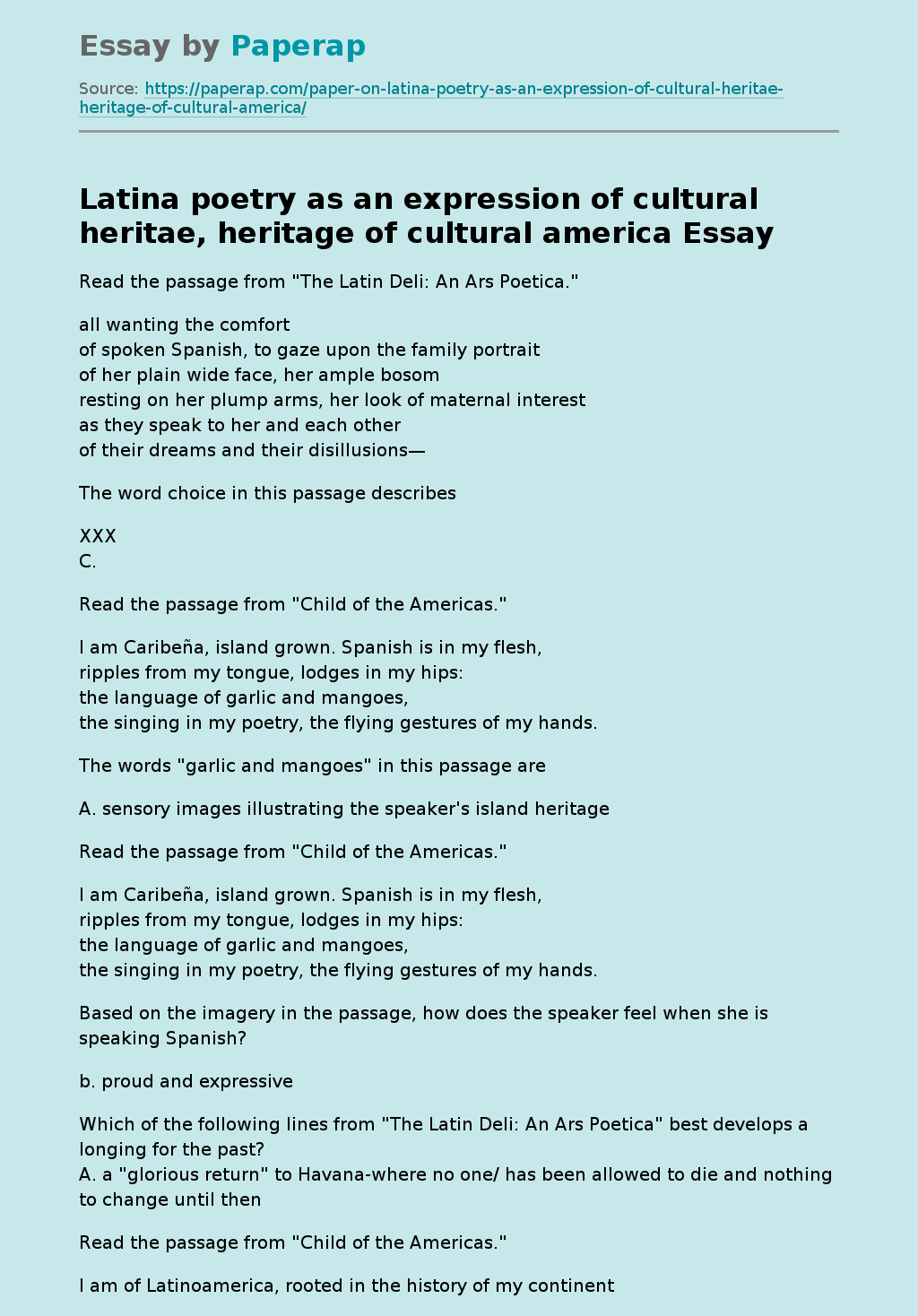Latina poetry as an expression of cultural heritae, heritage of cultural america
all wanting the comfort
of spoken Spanish, to gaze upon the family portrait
of her plain wide face, her ample bosom
resting on her plump arms, her look of maternal interest
as they speak to her and each other
of their dreams and their disillusions—
The word choice in this passage describes
C.
I am Caribeña, island grown. Spanish is in my flesh,
ripples from my tongue, lodges in my hips:
the language of garlic and mangoes,
the singing in my poetry, the flying gestures of my hands.
The words “garlic and mangoes” in this passage are
I am Caribeña, island grown. Spanish is in my flesh,
ripples from my tongue, lodges in my hips:
the language of garlic and mangoes,
the singing in my poetry, the flying gestures of my hands.
Based on the imagery in the passage, how does the speaker feel when she is speaking Spanish?
I am of Latinoamerica, rooted in the history of my continent:
I speak from that body.
In these two lines, the speaker is showing how
I am not african. Africa is in me, but I cannot return.
I am not taína. Taíno is in me, but there is no way back.
I am not european. Europe lives in me, but I have no home there.
What does this passage reveal about the speaker of the poem?
ripples from my tongue, lodges in my hips:
she is the Patroness of Exiles…
who spends her days selling canned memories
while listening to the Puerto Ricans complain
that it would be cheaper to fly to San Juan
than to buy a pound of Bustelo coffee here,
and to Cubans perfecting their speech
of a “glorious return” to Havana…
to Mexicans who pass through, talking lyrically
of dólares to be made in El Norte—
The Puerto Ricans, Cubans, and Mexicans in the passage help to create the image that
the woman who runs the deli speaks many languages.
Latina poetry as an expression of cultural heritae, heritage of cultural america. (2017, Dec 27). Retrieved from https://paperap.com/paper-on-latina-poetry-as-an-expression-of-cultural-heritae-heritage-of-cultural-america/

